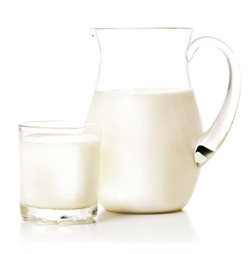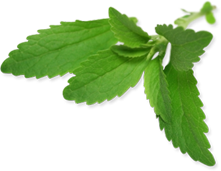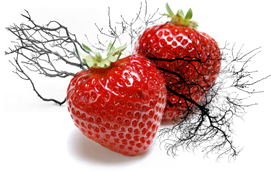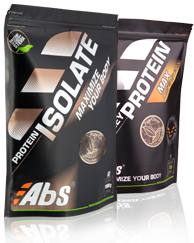Why our protein is better
DEMYSTIFYING PROTEINS AND GOING BACK TO BASICS

What exactly do we mean when we talk about proteins? Here's a little biology lesson: after being ingested and digested, proteins become amino acids. These amino acids are not synthesised by the body, but they are essential to our survival. This is why a balanced diet is so crucial. It provides our bodies with the amount of animal and vegetable proteins it needs.
Protein makes up the building blocks of muscle. Bodybuilders, athletes and fitness-conscious consumers know that they need protein to develop and maintain their muscles. They also frequently use protein supplements in their diet. But should this strategy follow specific guidelines? Yes. Ideally, the amount of protein supplements consumed should not exceed more than one third of our daily nutrient intake.
Now we've looked at quantity, let's look at quality. There are plentiful sources of protein, but they are not all equal in quality. For example, whey protein derived from cow's milk is one of the best protein sources there is. To obtain it, the whey is separated from the milk. This whey is then micro-filtered to retain the proteins, which are then dried to a fine powder.
The higher the protein concentration, the higher the quality of the protein supplement. For our range of ABs proteins, we have optimised the process to achieve optimal protein concentration. Manufacturers of mass-produced supplements do not always follow this approach as carefully; many opt to incorporate additives into their products. This 'trick' allows them to reduce the amount of actual protein in each pack.
Not all proteins are created equal and not all protein supplements offer the same quality! Here's a little more about what you might find in these products...
SWEETENERS: AFTER SWEETNESS, BITTERNESS

Sucralose, aspartame, acesulfame potassium, saccharin... all these rather grandiose terms refer to artificial sweeteners, most of which are banned in many countries or are on health authorities' watch lists. In fact, many scientific studies have proven the danger of these sweetener substances beyond doubt. Their consumption by children and pregnant women should be avoided. This is a good reason why most adults generally avoid consuming them.
Aware of these dangers, ABs uses no artificial sweeteners in its protein supplements. Only extract of stevia, a natural sweetener taken from Stevia rebaudania leaves, is added to our products in very small quantities.
'NATURAL' FLAVOURING: NOT AS NATURAL AS YOU THINK

Are you someone who believes that natural strawberry flavouring comes direct from the strawberry fruit? Don't be so sure! Strawberry flavouring actually comes from wood chips mixed with other ingredients that are burnt and fermented to obtain a strawberry taste that resembles the real thing. Since wood is a natural ingredient, the flavouring it produces is technically considered a natural flavouring. This is just one of many examples.
Contrary to what manufacturers claim, these so-called 'natural' flavourings are not without health risks: eating strawberries is not the same thing as eating burnt, fermented wood. Even if your palate is deceived, your body knows the difference. Natural, yes. Authentic, no.
At Abs we simply use no flavourings, whether natural or artificial. Our products get their taste from defatted cocoa powder and real vanilla pods, used generously.
ADDITIVES: THE GRAND BAZAAR

Let's remember what additives are for. Manufacturers generally use them to improve texture, enhance visual appearance, boost shelf life or for packaging purposes. But when you think about it, are they really necessary? Is it so essential to change the texture, colour or appearance of a product? Quite often, manufacturers overuse them.
Take thickeners, for example. Some are completely harmless; such as guar gum E412 from guar seeds, or carob bean gum E410, obtained from carob tree seeds. This is also true of alginates, which are derived from algae. All these thickeners are safe, although some manufacturers overuse them to obtain grossly over-thickened mixtures.
By contrast, other thickeners are much more dangerous, and should be banned from all food products. Take Xanthan gum E415, originally used by the cosmetics industry to thicken emulsions and form gels. Derived from a natural polysaccharide, produced through fermentation using Xanthomonas campestris bacteria, this compound is generally accepted for cosmetic use but has absolutely no place in the food industry. Just like this dangerous additive, many thickeners are often used to improve texture rapidly with complete disregard for food safety.
For our range of ABs products, we have used additives sparingly and have selected ones that offer the best nutritional properties. You will find guar gum in our products, but in very low quantities. Other than this, we have banned all preservatives, colorants and artificial or natural additives with no nutritional value. There are no needless flavourings in our products, only cocoa in sensible doses to provide a well-balanced taste to ABs protein supplements. And to improve performance during physical exercise by combating free radicals, instead of using an antioxidant additive, we only use cocoa bean extract.
GMOS: GENETICALLY MALIGN ORGANISMS

Some still harboured doubts, but the harmful effects of GMOs on health are now clear. A recent study by French biologist Gilles-Eric Séralini, professor of molecular biology at Caen University, was published in the journal Food and Chemical Toxicology. It demonstrates the serious effects of GMO consumption on human health. In France and in many other countries, cultivation of GMOs is banned. This should be welcomed. But the other problem with GMOs is that they can be consumed indirectly. For example, a human being may eat an animal that was fed GM maize. We therefore need to achieve full traceability to ensure no GM foods are consumed.
At Abs we have implemented such traceability. We guarantee that no animal has consumed feed or flour containing GMOs. We validate this traceability through certificates. The animals we use for our products have enjoyed a healthy, natural diet, in order to produce milk of the highest possible quality.
BPA (BISPHENOL A): FIRST THE CONTENTS, NOW THE CONTAINER ON TRIAL

Bisphenol A (BPA) has been a hot topic in recent years, and is now considered a product that is unsafe to human health. It is a type of plastic most commonly used for food packaging and even baby bottle teats. Yet, this plastic is a hormone disruptor that poses major health hazards, such as for sexual reproduction. This Wikipedia page explains the health risk posed by BPA: http://en.wikipedia.org/wiki/Bisphenol_A.
For example, 95% of urine samples collected from adults in the US contained high quantities of BPA. This substance accumulates in fatty tissue. Contamination occurs mainly through ingestion but can also occur through inhalation and skin absorption. We are therefore all potentially exposed to the health risks of Bisphenol A.
Through supplier certification, Abs guarantees that the sachets used in our protein supplements' packaging are manufactured without the use of Bisphenol A.
HOW CAN WE GUARD AGAINST RISK? SHOPPING AROUND IS THE ANSWER

New health scandals emerge every day. The ball is now in the court of manufacturers, who must take responsibility and anticipate future problems. The best protection is choosing ingredients that offer the highest responsibility. At ABs, this responsibility is our priority. It is our manufacturing teams' primary concern. We practice zero tolerance regarding any ingredient or technique that poses even the slightest risk to the health of our customers. This is why ABs offers the most effective and safest products in the field of sports nutrition.
How do you protect yourself? How do you know whether you can trust manufacturers? It's simple: read the labels, shop around. A very lengthy list of ingredients is always a warning sign that you should be wary.
Compare products and don't hesitate to ask for further information. At ABs we listen to our customers and are always ready to provide more information. You can seek advice from our experts, who will answer your questions as soon as possible.
BUT WHY TAKE PROTEINS IN THE FIRST PLACE?

So, now we know that proteins are nutrients that are not dangerous or mysterious in any way. But why are they useful? Why are people who want to improve their physical fitness, appearance and figure so keen to ensure they have a healthy protein intake in their diets? Because regular sports training is not enough. It must be accompanied by an appropriate diet. Bodybuilding and sport stimulate muscle building but an appropriate diet is what enables muscles to develop healthily and fatty tissue to disappear. Building muscle while also increasing body fat would not achieve the desired effect of a well-toned body, peak fitness and a great figure.
The single strategy for success is regular exercise and a healthy diet. A healthy diet means a balanced diet that also optimises protein intake, ensuring the right amount of fat and sugar is consumed.
Found in vegetables, animals and animal derivatives such as cheese, milk and eggs, protein is an essential component of a diet especially designed for muscle building. Vegetable proteins are released in smaller quantities than animal proteins, so they need to be eaten in higher quantities to obtain the same positive effects on the body.
When they come from animal sources, proteins are present in higher concentrations. But is eating meat every day, including lean meat and fish, the best solution? Not really, for several reasons.

Firstly, excessive consumption of meat is often the leading cause of mortality in developed countries. It is a contributing factor to cardiovascular disease and affects cholesterol levels in the blood, whose fatty deposits eventually clog arteries like limescale in a tap. Meat consumption in very large quantities also poses environmental problems to do with regulating our food resources*.
To produce 1kg of meat, an average of 16,000 m3 of water is needed, while one litre of milk requires just 738 m3, which is also lower than that required for wheat and maize crops. And we haven't even touched on the problems posed by intensive farming. It is much better for your health and for the environment to consume whey protein.
To sum up: protein is a supplement that is indispensable to anyone wanting to build their muscles and optimise their athletic performance. To achieve your goals, the best way to get your daily protein intake is from whey. Why? Because whey protein enables you to achieve your fitness goals, while enabling you to take care of your figure, your health and your planet.
* More about the environmental impact of excessive beef consumption:
http://en.wikipedia.org/wiki/Environmental_impact_of_meat_production

